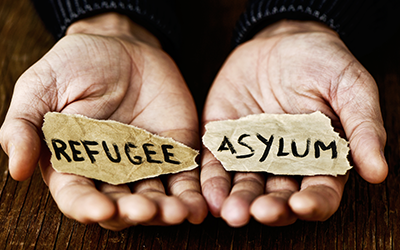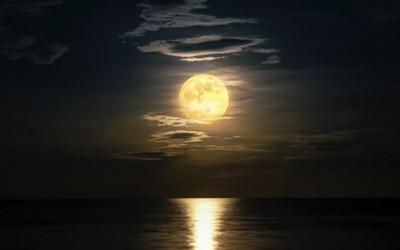Day 7, Year of #Mygration: Who counts as a refugee?

A free @OpenUniversity course open to all, offers an introduction to that subset of migrants who are refugees or asylum-seekers. Through the stories of Lotte, Wolja, Victor & Françoise, a century of official UK attitudes to ‘aliens’ is also explored.
Lotte and Wolja, 1938
On September 1st 1938, Lotte arrived at Harwich in England to join Wolja, the man she was going to marry. They had known each other for two years in Germany, and wanted to make their lives together, knowing that, as Jews, this would have to be outside Germany, the land of their birth and their identity. They both came from non-observant Jewish families, but since 1933, when Hitler came to power in Germany, they had gradually, but systematically, lost rights and opportunities to work.
In 1932, aged 19, Lotte had entered Berlin University to study medicine, but she was expelled in 1934. Wolja had completed his education, including in 1935 his PhD in Mathematics and Physics, but as a Jew he was unable to obtain work; he lived with his parents on their savings. Although born in Berlin, his father came from Romania and his mother from Poland. He grew up with Romanian citizenship, was naturalized as a German citizen in 1932, but lost this citizenship again in 1935, under new laws designed to preserve the ‘purity’ of the German ‘race’.
Lotte and Wolja knew that their lives could also be threatened in the future. Making a decision to leave was one thing; finding a way of doing it was another. At the time that they met, Lotte was living with her widowed mother in Berlin, planning to join her older sister and husband in Palestine. Meeting and falling in love with Wolja changed these plans. As a stateless person, with little money and poor eyesight, he had difficulty finding a place of refuge. For Switzerland he needed to fit a quota based on ‘nationality’; the USA refused him a visa because of his poor eyesight, despite his finding affluent relatives to ‘vouch’ for him. Eventually in May 1938 Wolja was granted permission to enter the UK ‘to seek work’, following the decision of the British government to grant visas to ‘desirable’ immigrants such as qualified scientists.
For four months Lotte made arrangements for her own departure to England, organizing her mother's journey to Palestine, and packing and shipping as much of their joint possessions as she could. As a woman, she could seek to enter the UK on a ‘domestic permit’, her only option as she lacked professional qualifications. So she had to wait for Wolja to find a family in England who would take her. The letters between them during this time reveal many of their feelings. He was extremely anxious and lonely in England. Although he had some friends (other German Jewish refugees), they tended to be in couples, already married. He relied on these friends and on Jewish refugee organizations for financial support. Despite his scientific qualifications, and his feeling of how much he could offer to the UK professionally, it was difficult to find work. He was registered in the UK as an ‘alien’, with temporary permission to stay. He did not know whether he would still be here when Lotte arrived, or more generally what would become of them both. Her letters express anxiety about having to do domestic work. She writes: ‘I have never enjoyed housework, it is not in my nature; please try to find me somewhere to work with children’. Both had learned English in school; they thought they would be safe in England, and could probably find work; if not they would try America again. They married in July 1939, just before the outbreak of World War II. He fought a 5 year battle with the Home Office to be recognized as stateless, rather than German, and was naturalized as a British citizen in 1947.
(E. Saraga, 2003, unpublished biography: reproduced with kind permission of the author)
View the course: Who counts as a refugee? 2 Personal lives
View the course: Who counts as a refugee? 4 Refugees, asylum seekers and citizenship
Quarterly Review of Research
Read our Quarterly Review of Research to learn about our latest quality academic output.

Contact our news team
For all out of hours enquiries, please telephone +44 (0)7901 515891
